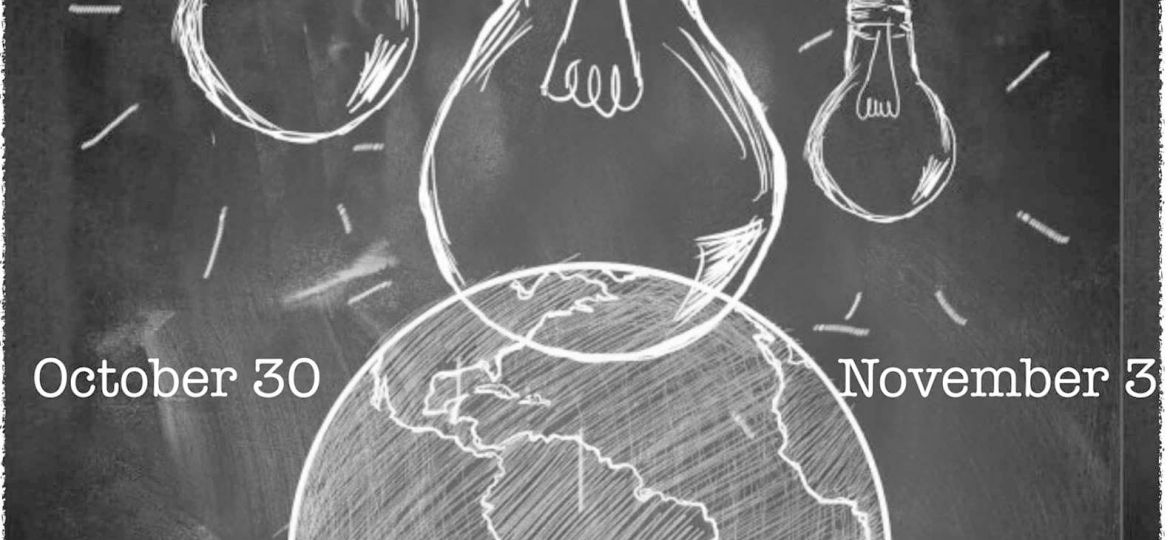
The International Student Organization (ISO) hosted a series of educational and celebratory events for International Awareness Week from Oct. 30 through Nov. 3. The organization arranged the week’s events to “bring a greater understanding and awareness to the realities of being an international student in America.”
Kicking off the week was a lecture on immigration by Professor of Political Science Katherine Tegtmeyer Pak. In her talk, Pak gave a broad overview of the history, statistics and politics of immigration, suggesting we analyze the issue through the lense of a “three-fold sort of mismatched globalization.” According to Tegtmeyer Pak, globalization occurred in three discordant dimensions: economically, through the rise of global capitalism; politically, through the proliferation of the nation-state model; and morally, through the development of global norms of human rights.
After outlining her thesis, Tegtmeyer Pak gave an overview of humanity’s migratory history, emphasizing that humans have long been migratory beings. Tegtmeyer Pak also examined historical shifts in wealth and power fueled by immigration, particularly those from the European core towards North America.
Tegtmeyer Pak highlighted key statistics on immigration, both to illuminate the current state of affairs and to illustrate globalization at work.
“These sorts of statistics were created in France and in Germany in ways to try and understand who is where,” she said. “This sort of thinking catches that one form of [political] globalization. It catches the fact that we have a way of governing ourselves that works similarly in different parts of the world.”
Throughout her lecture, Tegtmeyer Pak emphasized the various ways different forms of globalization conflict. In one slide, she displayed sobering statistics on the scope of the global refugee crisis, including the number of migrants dying en route to their destination. Later, she showed most developed countries are seeking to maintain or decrease the numbers of immigrants they admit each year, indicating an aversion among these countries to fully embrace refugee resettlement. Tegtmeyer Pak emphasized this point when she asked audience members to formulate their ‘ideal’ immigration policy, an exercise that illustrated how self-interested national policies often prioritize political and economic interests over humanitarian concerns.
In addition to Tegtmeyer Pak’s lecture, ISO hosted an “Open Heart Session” in the Pause on Nov. 1. According to ISO, this event was intended to be a “wholesome space for international students to come forth and speak about their experiences as international students in the U.S.” ISO also hosted a “Meet and Greet” in the Ytterboe lounge featuring snacks and games.
Last spring, several protesters alleged that events similar to those hosted for International Awareness Week were ‘tokenizing’ towards international students. However, many international students reject that characterization.
“I think it’s great, as long as it’s not against, unwelcoming, uninviting to domestic students,” Måttiås Køstøv ‘20 said. “I don’t think it’s tokenizing, I think it’s fine.”
Others have more mixed feelings.
“We are coming from 100+ different countries, and just naming us as ‘internationals,’ it is kind of interesting,” Doğukan Günaydın ‘21 said. “But I guess if the events were informative and actually understanding of the various backgrounds that we have, I think it could be useful.”
Some students are skeptical of the amount of work an event like International Awareness Week can really acomplish.
“It’s good that people are actually caring about informing others and raising awareness,” Zoi Triantafilidou ’20 said. “But I think that a week is not enough to raise awareness, because when you’re an international, and especially when you have an accent or look different, people dismiss you very easily, and I don’t think an International Week can bridge that gap.”

